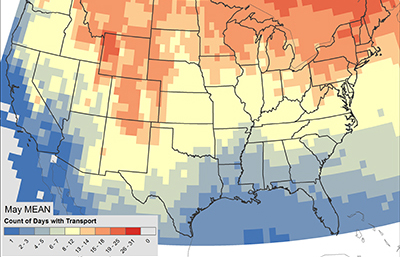Smoke from U.S. Fires Impacts the Arctic and Contributes to Climate Change
Clients
Joint Fire Science Program (JFSP)
USDA Forest Service
U.S. Department of State
Black carbon (soot) is considered to be one of the most significant agents in global climate change. When black carbon deposits on Arctic snow and ice, it can accelerate melting. Prescribed burning is an important tool used by land managers to maintain healthy forest ecosystems; however, smoke from fires is a major source of black carbon. By studying 30 years of meteorological data, in partnership with the USDA Forest Service AirFire Team, Sonoma Technology determined the meteorological conditions that favor the transport of smoke from the U.S. to the Arctic. With this information, land managers can limit the impact of black carbon on the Arctic and climate while still meeting land management objectives by burning during periods when smoke transport to the Arctic is unlikely to occur.
Climate
Fire and Smoke
Meteorology
Modeling
Transportation


Hilary R. Hafner

Hilary
R.
Hafner
Principal Scientist / Quality Assurance Manager
Hilary@sonomatech.com
/sites/default/files/2025-01/HRHres.pdf
